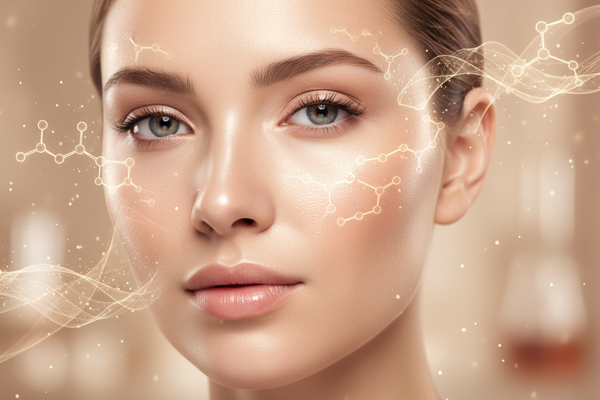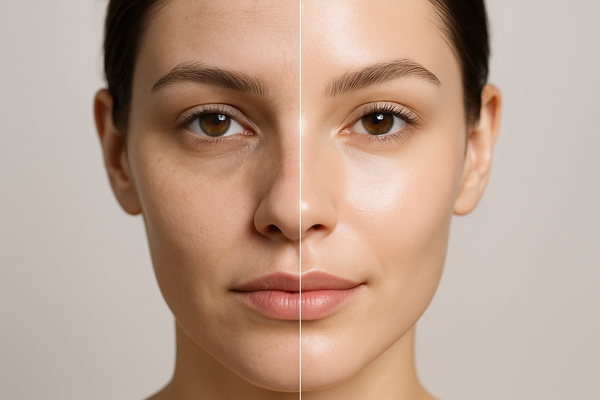Beauty Sleep

Beauty Sleep: How Sleep Affects Your Skin
Ever heard the phrase "beauty sleep"? It turns out, there's a lot of truth to that saying! Sleep plays a crucial role in maintaining healthy, radiant skin. When you're catching those Zzz's, your body undergoes vital restorative processes that benefit your skin in several ways.
Here's how sleep impacts your skin health:
1. Repair and Regeneration:
- During sleep, your body produces growth hormone, which stimulates cell turnover and repair. This helps heal sun damage, reduce wrinkles, and promote a more even skin tone.
- Collagen production also increases during sleep. Collagen is a protein that provides structure and elasticity to your skin, keeping it plump and youthful.
2. Hydration and Blood Flow:
- While you sleep, your body naturally perspires, helping to rehydrate your skin and remove toxins. This can lead to a more dewy and healthy-looking complexion.
- Blood flow to the skin increases during sleep, delivering essential nutrients and oxygen to your skin cells, promoting overall skin health.
3. Reduced Inflammation:
- Sleep deprivation can lead to increased levels of cortisol, a stress hormone that can trigger inflammation in the body. This inflammation can manifest as breakouts, redness, and other skin problems.
- Getting enough sleep helps regulate cortisol levels, reducing inflammation and promoting a calmer, clearer complexion.
The Consequences of Sleep Deprivation:
When you don't get enough sleep, the negative effects can show up on your face quite literally. Here's what you might experience:
- Dryness and dullness: Lack of sleep can disrupt the natural hydration process, leading to dry, flaky skin.
- Dark circles and puffiness: Sleep deprivation can cause blood vessels around the eyes to dilate, leading to dark circles and puffiness.
- Premature aging: Chronic sleep deprivation can accelerate the breakdown of collagen and contribute to the formation of wrinkles and fine lines.
- Increased breakouts: Sleep deprivation can worsen acne by triggering inflammation and disrupting hormone levels.
How Much Sleep Do You Need?
The National Sleep Foundation recommends that adults get between 7 and 9 hours of sleep per night. However, individual needs may vary. Listen to your body and aim for the amount of sleep that leaves you feeling refreshed and energized.
Tips for a Good Night's Sleep (and Glowing Skin!):
- Establish a regular sleep schedule: Go to bed and wake up at the same time each day, even on weekends.
- Create a relaxing bedtime routine: This might include taking a warm bath, reading a book, or practicing relaxation techniques.
- Optimize your sleep environment: Make sure your bedroom is dark, quiet, and cool.
- Limit screen time before bed: The blue light emitted from electronic devices can interfere with sleep.
- Develop healthy habits: Exercise regularly, manage stress, and avoid caffeine and alcohol close to bedtime.
By prioritizing sleep, you're not just giving your body a rest, you're also investing in the health and beauty of your skin. So, embrace those nights of rest, and wake up to a brighter, healthier you!




